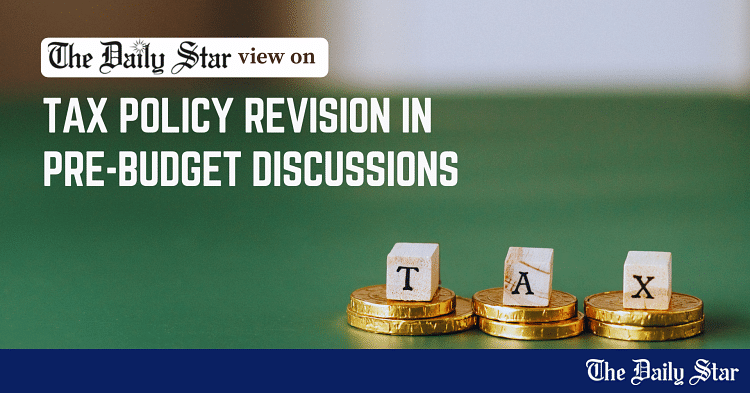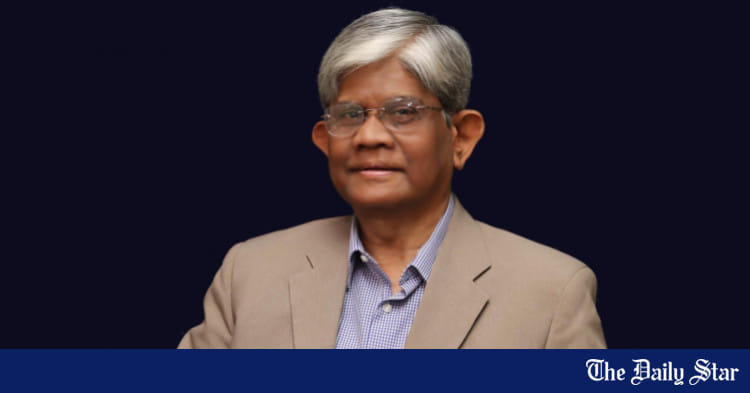Saif
Senior Member
- Jan 24, 2024
- 11,716
- 6,563
- Origin

- Residence

- Axis Group

FY26 budget to prioritise reform initiatives
Shakhawat Hossain 02 March, 2025, 23:39

The national budget for the forthcoming financial year of 2025-26 will focus on the reform initiatives taken by the interim government aiming at ensuring good governance, eradicating poverty and curbing discrimination to achieve an inclusive economic growth in the country.
Officials referring to a directive given by finance secretary Khairuzzaman Mozumder in the past month said that all ministries and divisions were asked to send information linked to reform programmes taken by the interim government that assumed power on August 8, 2024 after the ouster of autocratic Awami League regime in a mass uprising in July-August past year.
The ministries and divisions have been asked to send the information by March 15, added the officials.
Finance adviser Salehuddin Ahmed, who is expected to announce the national budget on June 5, in his speech would give the updates on reforms in the areas of good governance, inclusive growth and poverty alleviation.
Economists said that it would be highly interesting to know about the reform programmes taken by the ministries and divisions since the national budget would be the first major government document to follow up the spirit of the mass uprising.
People are yet to know about priority reform agendas of the different ministries and division, said former World Bank Dhaka Office chief economist Zahid Hussain.
Besides, people will be able to learn the interim government’s views on mass uprising, to be reflected in the budget speech, he added.
Economists said that the narratives of uprising available in the government documents had so far been prepared by the task forces and commissions led by economists, academicians, law experts and former bureaucrats.
Officials said the finance secretary issued the directive after placing an outline of the new budget before interim government chief adviser Professor Muhammad Yunus on February 5.
They said that the chief adviser suggested a proper reflection of the uprising spirit in the budget document.
It has been reported that the chief adviser directed ministers and divisions to select at least one reform programme out of the recommendations made by the task force on re-strategising the economy and mobilising resources for equitable and sustainable development.
The task force’s recommendations include new institutions in the civil aviation sector, postgraduate education, research in science, technology, engineering and mathematics, information and communication technology and artificial intelligence.
To tackle the issue of over-regulation and bureaucratic hurdles that have long hindered business growth, the task force proposes the creation of a regulatory reform commission tasking it with evaluating and streamlining regulations across sectors, including business operations and taxation.
The finance secretary also sought information regarding the measures taken by the ministries and divisions on the country’s graduation from the least developed country status in 2026.
The government needs to bring about changes in incentives for the export-oriented sector in the budget since the graduation would restrict the facilitating of direct cash subsidy.
Besides, the country would loss preferential tariff in sending goods to the developing and developed countries.
Economists said that the country was in a favourable position to complete graduation from the LDC status.
Some sections of stakeholders have demanded deferring the graduation process, citing disruption in businesses, said Centre for Policy Dialogue distinguished fellow Mustafizur Rahman.
He said that the FY26 budget document should disseminate updates from the ministries and division on the important national issue.
Officials said the finance ministry had planned a big outlay of about Tk 8.5 lakh crore for the 2025-26 financial year, aiming at encouraging business activities.
They said that emphasis would be given on the generation of more revenue by the National Board of Revenue to support the big expenditure plan.
The provisional target for the NBR has been set at Tk 5.2 lakh crore.
The annual development expenditure in FY26 would be close to a third of the total outlay with focus on job creation projects in sectors like education, health and social safety net.
Shakhawat Hossain 02 March, 2025, 23:39
The national budget for the forthcoming financial year of 2025-26 will focus on the reform initiatives taken by the interim government aiming at ensuring good governance, eradicating poverty and curbing discrimination to achieve an inclusive economic growth in the country.
Officials referring to a directive given by finance secretary Khairuzzaman Mozumder in the past month said that all ministries and divisions were asked to send information linked to reform programmes taken by the interim government that assumed power on August 8, 2024 after the ouster of autocratic Awami League regime in a mass uprising in July-August past year.
The ministries and divisions have been asked to send the information by March 15, added the officials.
Finance adviser Salehuddin Ahmed, who is expected to announce the national budget on June 5, in his speech would give the updates on reforms in the areas of good governance, inclusive growth and poverty alleviation.
Economists said that it would be highly interesting to know about the reform programmes taken by the ministries and divisions since the national budget would be the first major government document to follow up the spirit of the mass uprising.
People are yet to know about priority reform agendas of the different ministries and division, said former World Bank Dhaka Office chief economist Zahid Hussain.
Besides, people will be able to learn the interim government’s views on mass uprising, to be reflected in the budget speech, he added.
Economists said that the narratives of uprising available in the government documents had so far been prepared by the task forces and commissions led by economists, academicians, law experts and former bureaucrats.
Officials said the finance secretary issued the directive after placing an outline of the new budget before interim government chief adviser Professor Muhammad Yunus on February 5.
They said that the chief adviser suggested a proper reflection of the uprising spirit in the budget document.
It has been reported that the chief adviser directed ministers and divisions to select at least one reform programme out of the recommendations made by the task force on re-strategising the economy and mobilising resources for equitable and sustainable development.
The task force’s recommendations include new institutions in the civil aviation sector, postgraduate education, research in science, technology, engineering and mathematics, information and communication technology and artificial intelligence.
To tackle the issue of over-regulation and bureaucratic hurdles that have long hindered business growth, the task force proposes the creation of a regulatory reform commission tasking it with evaluating and streamlining regulations across sectors, including business operations and taxation.
The finance secretary also sought information regarding the measures taken by the ministries and divisions on the country’s graduation from the least developed country status in 2026.
The government needs to bring about changes in incentives for the export-oriented sector in the budget since the graduation would restrict the facilitating of direct cash subsidy.
Besides, the country would loss preferential tariff in sending goods to the developing and developed countries.
Economists said that the country was in a favourable position to complete graduation from the LDC status.
Some sections of stakeholders have demanded deferring the graduation process, citing disruption in businesses, said Centre for Policy Dialogue distinguished fellow Mustafizur Rahman.
He said that the FY26 budget document should disseminate updates from the ministries and division on the important national issue.
Officials said the finance ministry had planned a big outlay of about Tk 8.5 lakh crore for the 2025-26 financial year, aiming at encouraging business activities.
They said that emphasis would be given on the generation of more revenue by the National Board of Revenue to support the big expenditure plan.
The provisional target for the NBR has been set at Tk 5.2 lakh crore.
The annual development expenditure in FY26 would be close to a third of the total outlay with focus on job creation projects in sectors like education, health and social safety net.














